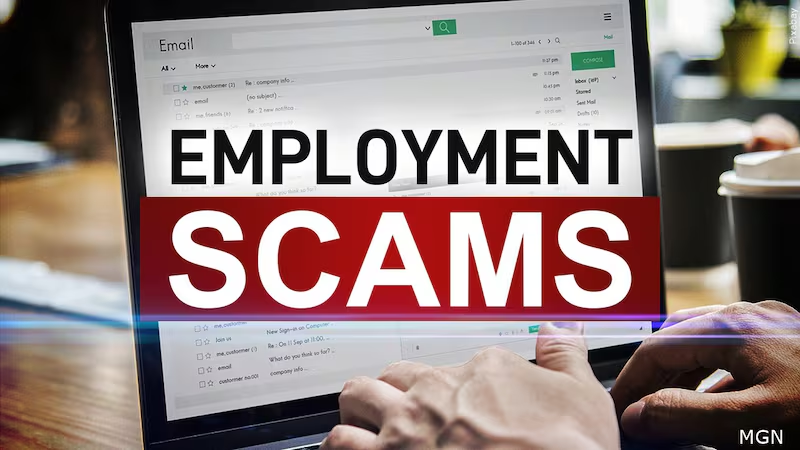Fake resume scams have become increasingly prevalent as job seekers and employers alike try to navigate the vast online employment landscape. While some people might fall victim to these scams innocently, others may fall prey to criminals looking to exploit the hiring process for fraudulent gain. Recognizing how to spot fake resume scams and taking measures to avoid them is crucial in protecting your career or business.
What Are Fake Resume Scams?
A fake resume scam occurs when a job applicant submits a resume with fabricated or exaggerated qualifications, work experience, or skills. These falsifications are designed to make the applicant appear more qualified for a role than they truly are. In some cases, the scam may also involve fake references or stolen identities. In a broader sense, these scams can also involve employers creating false job listings to gather personal information or charge job applicants fees.
How to Spot a Fake Resume
Spotting a fake resume is not always straightforward, but there are key signs to watch for. Here are some red flags:
1. Inconsistent Employment History
- Look for gaps in employment or frequent job changes that seem inconsistent with the applicant’s career progression.
- Fake resumes might list multiple positions at similar companies in a short period, suggesting job-hopping without meaningful experience.
2. Overly Vague Job Descriptions
- Pay attention to how the applicant describes their previous roles. A fake resume might use ambiguous language or broad terms like “assisted with tasks” rather than detailing specific responsibilities and achievements.
- A legitimate resume will showcase measurable achievements, such as “increased sales by 25%” or “led a team of 10 employees.”
3. Unverifiable Skills and Qualifications
- Scammers may list skills or certifications that are difficult to verify or do not align with industry standards. For example, a resume might claim proficiency in a software or tool without evidence of practical experience.
- Always cross-check certifications or professional qualifications through official channels.
4. Overemphasis on Job Titles or Generic Roles
- Fake resumes may focus too heavily on titles like “Executive” or “Manager” without substantial proof of expertise or relevant accomplishments.
- Job titles that sound exaggerated or too generic (e.g., “Operations Specialist”) may raise suspicion.
5. Spelling and Grammar Issues
- Professional resumes should be free from spelling or grammatical errors. Multiple errors in a candidate’s resume may indicate that the resume was hastily put together or even generated by a third-party service.
6. Inconsistent References
- Fake resume scammers may provide contact details for “references” that are not legitimate professionals. You can verify references by contacting the listed companies or individuals directly to confirm their involvement.
Key Measures to Avoid Falling for Fake Resume Scams
Being aware of the tactics used in fake resume scams is only the first step. Here are some preventive measures online users and employers can take to avoid falling victim:
1. Conduct Thorough Background Checks
- Always verify the credentials of applicants by checking their professional references, educational qualifications, and previous job history. Cross-reference information using LinkedIn profiles, personal websites, or other online platforms.
2. Use Resume Screening Tools
- Many online resume screening platforms use AI to analyze resumes for common signs of dishonesty. Implementing automated resume parsing systems can help detect discrepancies and highlight potential red flags.
3. Verify Job Listings
- Be cautious when applying to job listings that require upfront payments, seem too good to be true, or offer unrealistic salary expectations. Fake job postings are often a front for collecting personal information or money.
4. Request Work Samples
- For roles requiring specific skills, such as writing or graphic design, ask for work samples or portfolio pieces that showcase the applicant’s ability. Genuine applicants will be happy to provide examples of their work, whereas scammers might not have any.
5. Use Social Media and Professional Networks
- Cross-checking candidates on professional networks like LinkedIn can provide a clearer picture of their career history. A strong online presence with endorsements, recommendations, and posts related to their industry can help verify their authenticity.
6. Look for Employer Reviews
- Similarly, if you’re a job seeker, researching the company posting the job is essential. Use sites like Glassdoor, Indeed, or Trustpilot to see if other employees or job seekers have reported scams or negative experiences related to the company.
7. Create and Use a Secure Online Application Process
- For employers, ensure that your online application process includes identity verification measures such as government-issued ID verification or email confirmation to reduce the risk of accepting fraudulent applications.
8. Educate Your Employees or Team Members
- If you’re an employer or hiring manager, make sure your team is aware of the risks of fake resume scams and provide them with the necessary training to detect and report suspicious candidates.
Final Thoughts on Fake Resume Scams
Fake resume scams pose a significant risk to job seekers, employers, and businesses alike. Understanding the warning signs and taking proactive steps to verify the information provided by applicants can help prevent fraud and ensure that only legitimate candidates make it through the hiring process.
For job seekers, it’s important to maintain honesty on your resume, as submitting false information can not only harm your career but also damage your reputation within your industry. For employers, implementing a strong vetting process and using advanced tools to screen candidates is essential to maintaining a trustworthy hiring process.
By staying vigilant and informed, you can significantly reduce your exposure to fake resume scams and ensure a safer, more transparent hiring experience.














